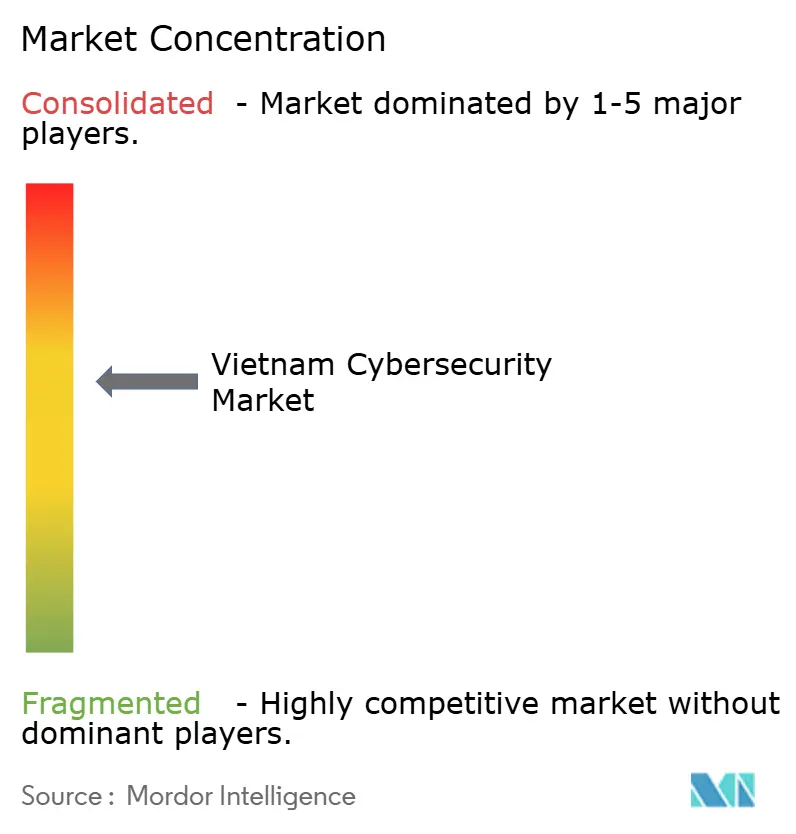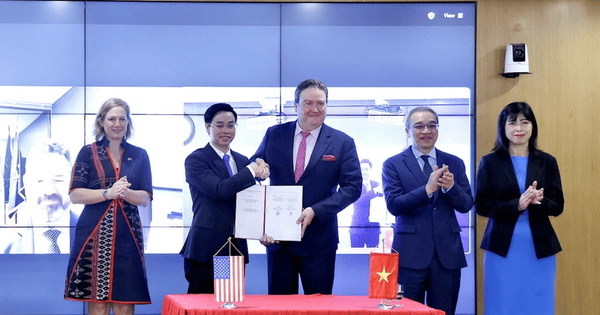Vietnam’s booming tech ecosystem, strategic Southeast Asian location, and rising demand for cybersecurity solutions make it an ideal destination for American startups launching firms in cities like Hanoi, Ho Chi Minh City, and Da Nang. With cyber threats growing—Vietnam faced 12,935 attacks in 2023—and a $2.7 billion tech market, American expertise in cybersecurity, from companies like Palo Alto Networks to CrowdStrike, is in high demand. However, Vietnam’s legal landscape—business registration, data protection, and compliance—requires careful navigation.
At La Défense Law Firm, we simplify the process for American startups, ensuring a smooth launch. This guide outlines clear legal steps to set up a cybersecurity firm in Vietnam, helping U.S. entrepreneurs succeed with confidence.

Why Vietnam’s Cybersecurity Market Attracts American Startups
Vietnam’s tech sector grows 10-15% annually, driven by digital transformation in finance, e-commerce, and government. With 70% of its 100 million population online, cyber risks—like ransomware or data breaches—are surging, creating demand for firewalls, encryption, or threat detection. American startups, known for cutting-edge solutions, can tap this need, especially in Hanoi’s tech hubs or Ho Chi Minh City’s startups. Vietnam’s low costs—engineers earn $1,000/month versus $8,000 in the U.S.—and U.S.-Vietnam trade ties add appeal.
Start by understanding this demand. La Défense Law Firm analyzes Vietnam’s cybersecurity needs, ensuring your solutions—say, cloud security for Ho Chi Minh City banks or antivirus for Da Nang firms—meet local trends. We guide compliance with Vietnam’s tech laws, helping your startup shine in this dynamic market.

Step 1: Register Your Cybersecurity Firm
To launch a cybersecurity firm, American startups must register under Vietnam’s Law on Enterprises, typically as a wholly foreign-owned limited liability company (LLC). Submit a Vietnamese-language application to the Department of Planning and Investment in Hanoi, Ho Chi Minh City, or Da Nang, detailing your business scope, capital (often $50,000 minimum for tech), and tech plans. Errors, like unclear service descriptions, delay approvals from the Ministry of Planning and Investment (MPI).
Legal help makes it easy. La Défense prepares filings for your firm in Hanoi’s Cau Giay or Ho Chi Minh City’s District 7, ensuring MPI compliance. We secure your license, setting your business—whether offering penetration testing in Hai Phong or data protection in Nha Trang—on a solid legal foundation for a fast start.
Step 2: Obtain Cybersecurity and IT Licenses
Vietnam’s Ministry of Information and Communications requires a Cybersecurity Service License for firms offering threat detection, encryption, or consulting, proving compliance with technical standards and data security. If handling sensitive data, you’ll need a Data Protection Certificate under the Cybersecurity Law, filed in Vietnamese. Non-compliance risks fines or bans, stalling your services in Hanoi’s finance sector or Da Nang’s e-commerce market.
Legal support speeds approvals. La Défense compiles dossiers for your firm in Ho Chi Minh City’s District 1 or Hanoi’s Ba Dinh, coordinating with authorities. We ensure your services—say, firewalls for Hanoi startups or malware scans for Hoi An businesses—meet Vietnam’s strict regulations, getting you to market without delays.
Step 3: Choose a Tech Hub or Industrial Zone
Vietnam’s tech hubs, like Hanoi’s Hoa Lac Hi-Tech Park or Ho Chi Minh City’s Saigon Hi-Tech Park, offer modern infrastructure, tax breaks (10% corporate tax for 15 years), and access to talent. Industrial zones (IZs) in Bac Ninh or Da Nang provide logistics for hardware-focused cybersecurity firms. However, office leases and local bureaucracy in Vietnamese require careful handling to avoid disputes.
Legal expertise optimizes your setup. La Défense advises on tech hubs, securing leases for your office in Hanoi’s Long Bien or Ho Chi Minh City’s District 7, where U.S. FDI hit $11 billion by 2023. We handle Vietnamese contracts, ensuring your firm—developing software in Da Nang or hardware in Binh Duong—benefits from Vietnam’s tech incentives and connectivity.

Step 4: Navigate Taxation and Trade Benefits
Vietnam’s corporate tax is 20%, but tech firms in IZs or hi-tech parks may qualify for 10-17% rates for 10-15 years, with VAT exemptions for software exports. The U.S.-Vietnam Bilateral Trade Agreement supports tech trade, though cybersecurity services face local scrutiny under data laws. Tax filings in Vietnamese are mandatory, and errors, like misreported revenue, risk audits, especially for startups in Hanoi or Ho Chi Minh City.
Legal guidance saves money. La Défense files taxes for your firm in Da Nang or Hai Phong, securing incentives for Hanoi’s tech parks. We ensure compliance with Vietnam’s General Department of Taxation, keeping your finances clear so your cybersecurity business—whether in Nha Trang or Bac Ninh—thrives cost-effectively.
Step 5: Hire and Train Staff Legally
Vietnam’s tech talent, with 80,000 IT graduates annually in Hanoi “‘s Cau Giay and Ho Chi Minh City’s District 7, is perfect for cybersecurity, costing $1,000-$2,000/month versus $8,000 in the U.S. The Labor Code requires work permits for American managers, needing notarized degrees and experience, and Vietnamese contracts for locals, covering social insurance (8% employee, 17.5% employer). Training for tools like SIEM systems must align with labor laws.
Legal services ensure compliance. La Défense secures permits for your team in Hanoi’s Hoan Kiem or Da Nang’s tech hubs and drafts contracts for locals in Hoi An. We advise on training, ensuring your firm—building threat detection in Ho Chi Minh City’s District 1 or encryption in Binh Duong—runs with a skilled, legal workforce ready for American innovation.
Step 6: Protect Intellectual Property
American cybersecurity startups rely on proprietary software, algorithms, or brands, making intellectual property (IP) protection critical in Vietnam’s competitive tech scene. Register patents or trademarks with the National Office of Intellectual Property, using Vietnamese filings. Unprotected IP risks copycats, especially in Hanoi’s tech startups or Ho Chi Minh City’s digital markets, harming your firm’s value.
Legal support safeguards your assets. La Défense manages IP registrations for American firms, protecting software for a cybersecurity tool in Da Nang or branding in Hanoi’s Hai Ba Trung. We draft non-disclosure agreements for partnerships in Nha Trang, ensuring your technology stays secure in Vietnam’s fast-growing tech sector.
![]()
Step 7: Comply with Data Protection and Cybersecurity Laws
Vietnam’s Cybersecurity Law (2018) mandates data localization for sensitive client data, requiring servers in Vietnam for certain services, and strict reporting for breaches. Non-compliance risks fines or service bans, impacting your reputation in Hanoi’s finance or Ho Chi Minh City’s e-commerce sectors. EU-aligned standards via EVFTA also apply for cross-border data flows.
Legal experts ensure adherence. La Défense guides your firm in Hanoi’s Ba Dinh or Ho Chi Minh City’s District 9 through data compliance, securing certifications for Da Nang’s clients. We align with Vietnam’s laws, ensuring your services—whether cloud security in Hai Phong or audits in Hoi An—meet local and global standards.
Step 8: Navigate Culture and Build Partnerships
Vietnam’s culture values trust and patience, differing from America’s fast-paced style. Rushing deals in Hanoi or skipping relationship-building in Ho Chi Minh City can stall progress. Partnerships with local tech firms, like Viettel, offer market access, but Vietnamese bureaucracy in Da Nang or Nha Trang requires careful handling.
Legal support bridges gaps. La Défense coaches American startups on Vietnam’s norms, like respectful talks for contracts in Hanoi’s Tay Ho or filings in Bac Ninh. We draft partnership agreements, ensuring your firm—whether in Ho Chi Minh City’s District 7 or Hanoi’s Long Bien—integrates smoothly with Vietnam’s tech ecosystem and culture.
Launch Your Cybersecurity Firm in Vietnam with Confidence
Vietnam’s cybersecurity market offers American startups a chance to grow in a tech-hungry region, but legal steps—registration, licensing, and data compliance—are key to success. With the right support, your firm can thrive in Hanoi, Ho Chi Minh City, or Da Nang, securing Vietnam’s digital future. La Défense Law Firm simplifies the process, turning challenges into opportunities.
Contact us today to start your cybersecurity firm in Vietnam with tailored legal solutions and seize this exciting market with ease.
bài viết pháp lý khác có liên quan
Other related legal articles:
- Can Foreigners Register a Company in Vietnam?
- Legal Compliance for Foreign-Owned Company in Vietnam
- How to Set Up a Korean Company in Vietnam 2025
- How to Set Up a Turkey Company in Vietnam 2025

